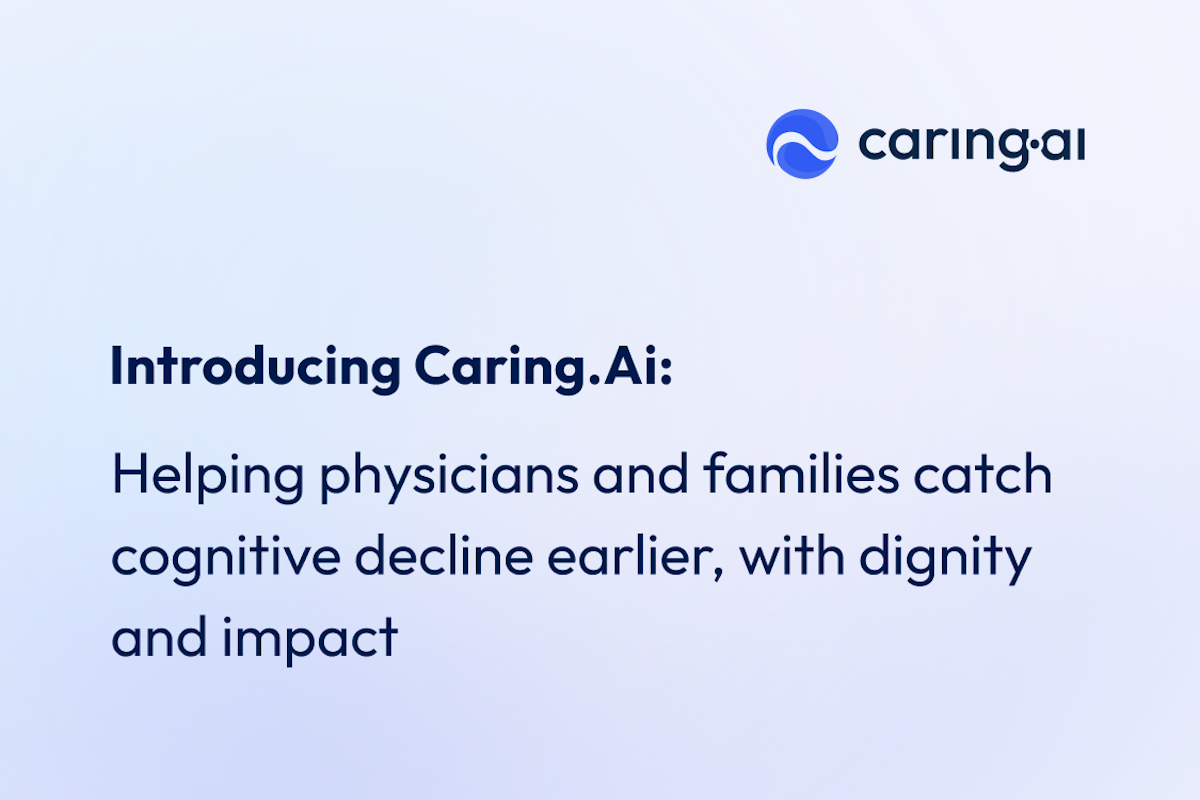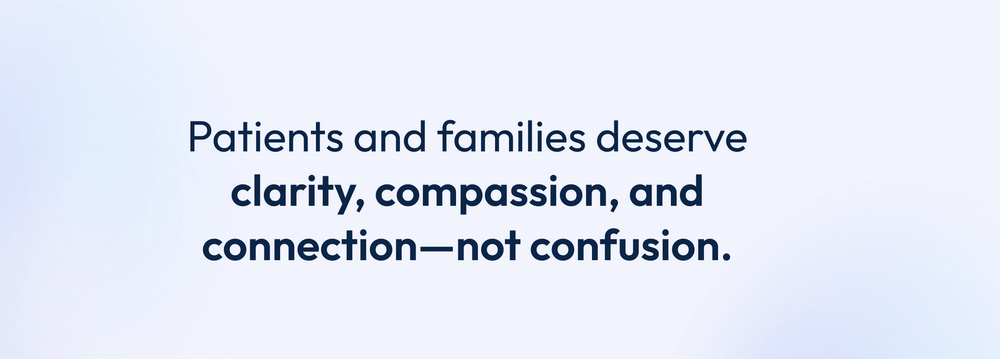Introducing Caring.ai: Helping Physicians and Families Catch Cognitive Decline Earlier, With Dignity and Impact

The landscape of Alzheimer’s and cognitive decline is shifting—rapidly. New therapeutics are emerging. Diagnostic tools are improving. And for the first time, there's a meaningful clinical benefit to detecting Alzheimer’s early.
At Caring.ai, we believe this moment is not just an opportunity—it's an obligation. Our mission is simple: help physicians identify memory loss and cognitive decline earlier and more broadly, in ways that honor both their time and their patients’ dignity.
Why Now? The Treatment Era for Alzheimer’s Is Here
In just the last two years, the FDA has approved disease-modifying therapies like donanemab, lecanemab (Leqembi), and aducanumab (Aduhelm)—drugs that target amyloid plaques and offer meaningful clinical benefit when started early. (JAMA, 2023; NEJM, 2022).
- Donanemab, approved in 2024, demonstrated a 35% slowing in cognitive and functional decline when started early (JAMA, 2023).
- Lecanemab, approved in 2023, showed a 27% slower rate of decline versus placebo (NEJM, 2022).
- These therapies may help extend the time patients can live independently, particularly when treatment begins in the earliest stages of disease progression (Washington University, 2024).
And this is just the beginning. Over the next 3–5 years, advances are expected in plasma-based biomarkers, tau-targeting therapies, and AI-supported diagnostics to further accelerate early detection and treatment. This means earlier diagnosis doesn’t just offer hope it offers action.

But We Have a Problem: Most Patients Aren’t Getting Screened
Despite clear clinical benefits, only 8–10% of patients over age 65 are routinely screened for cognitive impairment, even though:
1 in 9 adults over 65 already has Alzheimer’s.
(Alzheimer’s Association, 2024 Facts & Figures)
Fewer than 1 in 10 cases of mild cognitive impairment (MCI) among older adults are recognized by primary care providers—meaning the vast majority go undiagnosed.(New Hampshire Bulletin, 2024)
Nearly 9 out of 10 older adults with measurable cognitive impairment never receive a formal diagnosis, meaning most miss the chance for early intervention.
(PMC, 2022)
Why? Because the current system makes early detection impractical for physicians.
Primary Care Isn’t Set Up for This
Time pressure: Most cognitive assessments take 15–30 minutes—time that PCPs simply don’t have.
Workflow friction: Many tools require specialized hardware, third-party software, or manual administration, making adoption cumbersome and costly.
Reimbursement confusion: Even though CPT codes like 96116, 96132, and 99483 offer reimbursement, many providers are unaware or not operationally equipped to bill.
And There’s Historically Been Low Motivation
With no cure, early detection previously offered little actionable value.
Physicians often don’t have the referral pathways or infrastructure to support next steps.
The wait time to see a neurologist can be 6 months or more, leaving patients and families in limbo after diagnosis.
The Patient Experience Is Also Failing
Most patients today are expected to:
Visit an office.
Take a cognitive test in front of a stranger or via tablet.
Receive little follow-up or emotional support during one of the most confusing moments of their lives.
This isn't just outdated—it's inhumane.

Caring.ai Changes This
We’ve built Caring.ai to meet physicians and families where they are. Our system offers:
Phone-based Cognitive Screening
No tablet, no login, no waiting room.
Administered through a natural phone conversation with an AI voice agent.
Patients can take it from home, with dignity, in 5–10 minutes.
Speech-Based Analysis
Uses over 60 validated acoustic and linguistic biomarkers to detect signs of MCI and early dementia.
Augments traditional tests like the 6CIT with AI precision and scalability.
Physician-First Design
Zero additional hardware.
Fully reimbursable through existing cognitive assessment CPT codes.
Designed to integrate before the visit or as part of population health outreach.
Care Navigation Support
We don’t stop at diagnosis. Caring.ai helps close the loop:
Real-time reporting and recommendations for the physician.
Optional care navigation referrals to help patients and families get connected to resources—fast.
Designed to bridge the 6-month gap between diagnosis and neurology or specialist care.
Our Why
Every year, millions of patients and families are caught off guard by cognitive decline. They deserve clarity, compassion, and connection—not confusion.
We built Caring.ai because:
Early diagnosis is finally actionable.
Physicians deserve tools that reduce burden—not add to it.
Families deserve a path forward that meets the moment with dignity and care.
Let’s screen more. Let’s detect earlier. Let’s support better.